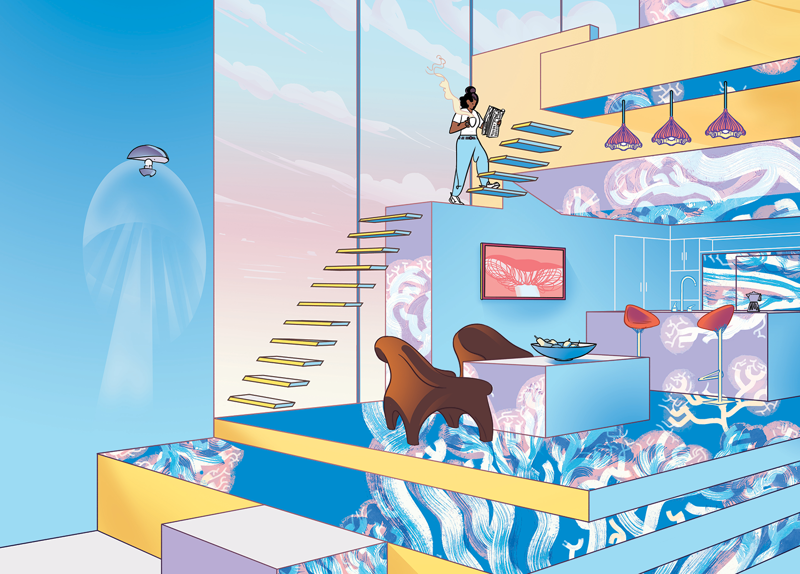Home
Top stories
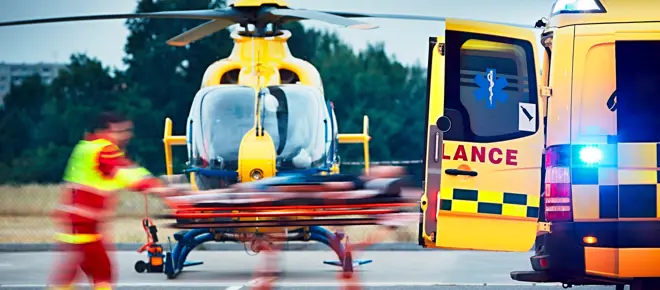
- Health & medical
- Issue 102
Stopping the bleed: a challenge for engineers
Haemorrhage is second only to traumatic brain injury as a cause of death from injury the UK. Tourniquets are well known for treating blood loss from limbs, but there is no proven equivalent for patients with a non-compressible haemorrhage. Surgeons, emergency department physicians and other trauma specialists grappling with this problem are now looking to engineers for new solutions.
Quick read
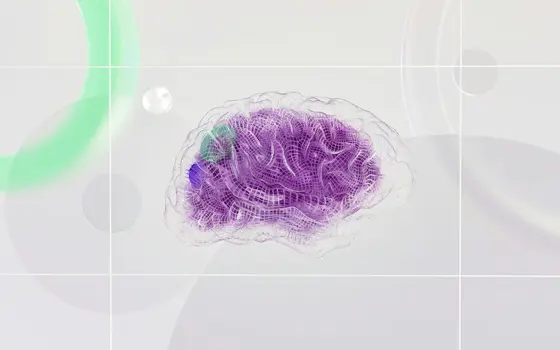
- Software & computer science
- Electricals & electronics
- Innovation Watch
- Issue 103
Memristors go mainstream: brain-inspired hardware could cut AI’s energy costs
Professor Themis Prodromakis designs neuromorphic AI hardware that takes cues from the brain. Aside from slashing AI’s energy use, it could also make for smarter spacecraft and brain-computer interfaces.
Quick read

- Technology & robotics
- Transport
- Innovation Watch
- Issue 103
Wayve is scaling self-driving AI around the world
UK-headquartered $1 billion AI startup Wayve is solving longstanding challenges for self-driving cars with deep learning. Where will its AI go next?

- Environment & sustainability
- Design & manufacturing
- Issue 103
Treating wastewater more sustainably
Towns across the UK are growing. Building more houses inevitably means more sewage and wastewater. Innovative collaborative working and an environmentally friendly treatment technology has delivered Scotland’s lowest carbon new wastewater treatment works.

- Arts & culture
- Civil & structural
- Issue 100
How ABBA Voyage was made
ABBA said they’d never tour again. Bringing them back required a technological marvel, a fully demountable arena, and an array of engineering disciplines working in tandem to make it all come together. Leonie Mercedes goes on a voyage to explore the engineering behind the show.
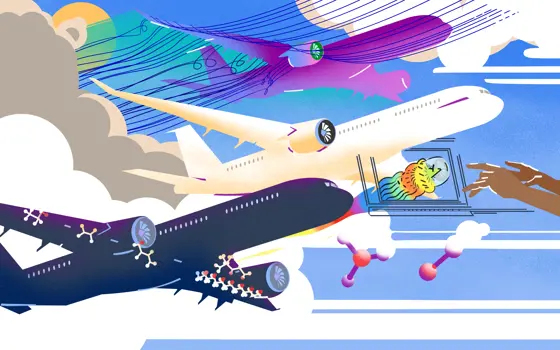
- Software & computer science
- Issue 103
Engineering simulation across scales
Thanks to exponential advances in computing and modelling techniques, engineers can simulate physical processes at multiple scales, from the sub-atomic to whole-aircraft systems. But physics-based models come with a steep computational cost – which data-driven, AI-based approaches could help us crack.
Get a free monthly dose of engineering innovation in your inbox
Subscribe todayEngineering for the planet
Brilliant engineers are at the cutting edge of climate impact, fighting for a greener world every day.

- Environment & sustainability
- Materials
- Issue 102
Concrete foundations for net zero
If concrete were a country, it would be the third largest emitter of CO₂ after the US and China. The race is on to slash its emissions. Swapping out its most polluting ingredients, locking in carbon, and upcycling our industrial and construction waste could hold the key, says Leonie Mercedes.
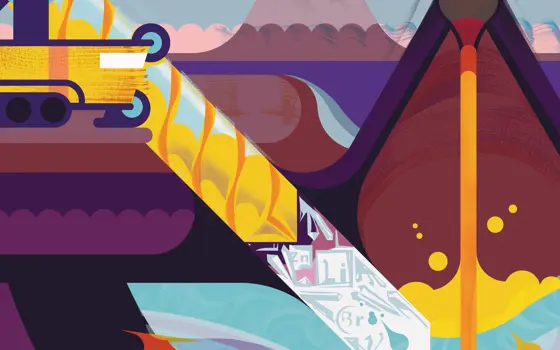
- Materials
- Environment & sustainability
- Issue 98
Mining volcanoes for metals
Green technologies depend on a range of metals and minerals. With concerns about environmental damage from conventional mining, scientists and engineers are seeking alternative sources. Could metal-rich magmatic brines underneath volcanoes have the answer?
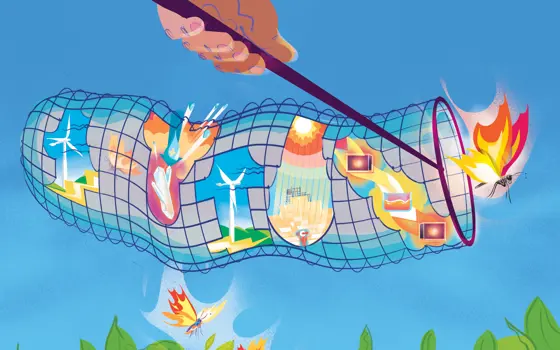
- Environment & sustainability
- Materials
- Issue 102
Taking the heat out of climate change
When we think of storing energy, we usually think of batteries. But with a huge slice of global carbon emissions resulting from producing heat, engineers are developing ways to store this critical resource with the hopes of driving us closer to net zero, writes Stuart Nathan.
People in engineering
Looking for careers inspiration? Say no more.
Quick read
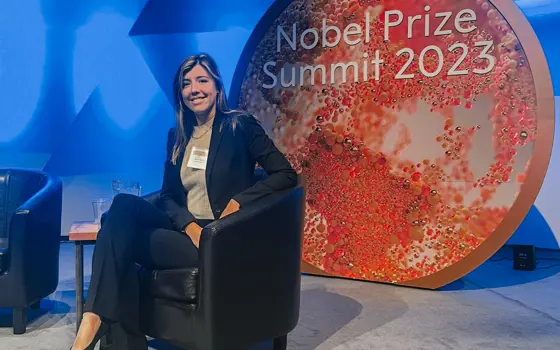
- Software & computer science
- How I got here
- Issue 102
Q&A: Sarah Barrington, PhD student studying AI harms and deepfakes
After studying engineering in the UK and embarking on a career in data science, Sarah Barrington is now a PhD student at the University of California, Berkeley.
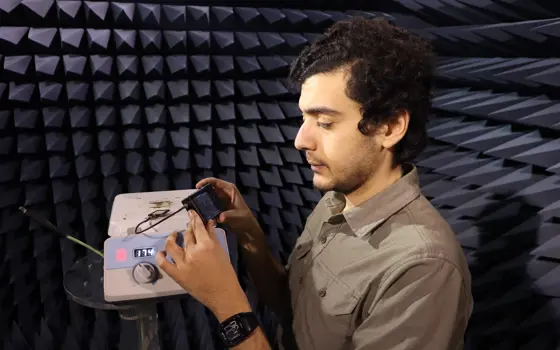
- Electricals & electronics
- How I got here
- Issue 103
Q&A: Dr Mahmoud Wagih, an award-winning electronics engineer
Dr Mahmoud Wagih is focusing on developing wireless power and sensing technologies using sustainable materials, which could lead to millions of low-waste, maintenance-free smart devices.
Quick read

- Sports & leisure
- How I got here
Q&A: Amjad Saeed, master’s student in motorsport engineering
Amjad Saeed is studying for a master’s in motorsports engineering, after winning a Royal Academy of Engineering and Mission 44 MSc Motorsport Scholarship.
About Ingenia
We run stories about engineering of all kinds.
Our stories showcase its unique breadth and variety, how it makes a difference, and how it helps to shape an inclusive, equitable, and sustainable future.
